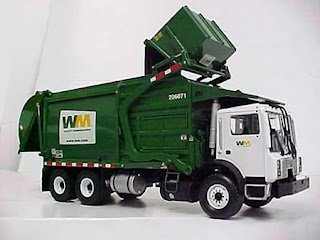Site Waste Management Plans - A Guide
The purpose of Site Waste Management Plans (SWMPs) is basically to provide accurate projections for waste delivery and disposal at every stage of a construction project. By making predictions the hope is that the contractor will realise how expensive this will be and then adjust his planning and, if necessary and possible, the design - to reduce construction waste disposal cost by minimising waste wherever possible, and then also recycling the remainder.
The plan should detail the production and management of waste, including accurate details showing quantities to be disposed of and recycled. From April 2007 in England, Site Waste Management Plans. have been required on almost every site. But his is no matter as most local authorities are already requesting these as a part of planning permission procedures.
SWMPs might just be the latest in a long line of UK government initiatives, but since most of the industry has clearly failed to tackle site waste voluntarily, it's another piece of red tape to comply with. It might not be a popular move, but products and materials are expensive - as is landfill - so getting it right should benefit both the planet and UK contractor's pockets. (This regulation will be broadened to cover the whole of the UK in due course of time.)
Solving the problems of waste disposal touches many vendors involved in the construction project including the owner (client), designers, contractors, etc. It starts from making it a concern already at initial stages of the project planning and continuing it through the design phase. Construction waste planning and the laborious process of site waste characterization and volume prediction must now be done in earnest.
For the production of an SWMP for the largest detailed plan will require familiarity with waste profile preparation and compliance with waste acceptance criteria compliance is required, as well as DOT transportation shipper certification. To make this easier there is a template, which supports standard, good and best practice in general construction, housing and civil engineering projects, and this has been developed by Halcrow, Costain, C4S, the NHBC Foundation and the BRE to support the industry in developing their plans.
The template comprises a series of 14 steps, which follow the construction lifecycle from pre-design to project completion and review. Using the template will enable contractors to develop key performance indicators (KPIs) for waste and materials, and monitor performance throughout the project. So the needs of the product override the ideals of the project and thus this plan came together.
Ideally, you should draft your Site Waste Management Plan at the pre-planning stage of a project. This allows you to extend the plan to include design and buying of materials. There will be a large number of smaller-scale economic and social projects implemented by the PA. Many will begin immediately.
The contractor must consider all aspects of creating, implementing and reviewing a Site Waste Management Plan. A robust tool is said to be available by the originators of the 'SMARTWaste Plan'. This helps to forecast waste generation and using the integrated measurement system can help to identify the type and amount of waste generated on site, and the associated costs.
Section 54 of the Clean Neighbourhoods and Environment Act 2005 provided the necessary powers for regulations to be made to require developers and contractors of construction and demolition projects to prepare site waste management plans. These plans must set out the arrangements for managing and disposing of waste created in the course of the project. The Clean Neighbourhoods and Environment Bill, published on 8th December 2004, provides the UK's Secretary of State with powers to make regulations to require developers and contractors to produce a written site waste management plan for construction and demolition projects.
A voluntary code of practice for developers and contractors promoting SWMPs for all construction projects is already in place, but regulations are expected in due course. From October 2007, almost every site will require a SWMP; indeed many local authorities already encourage these when granting planning permission. SECBE and other organisations have managing series of workshops for building contractors and their clients across the region to explain the new rules.
Site Waste Management Plans (SWMPs) are a good way to help businesses be careful about how they use, store and dispose of materials. It will also benefit the environment by reducing the waste generated from construction sites. Our experience in the waste management and construction industries means we are well placed to provide quality training in how to produce Site Waste Management Plans.
Article Directory: http://www.articledashboard.com


No comments:
Post a Comment